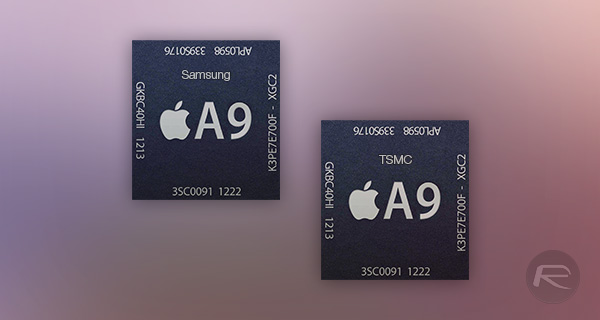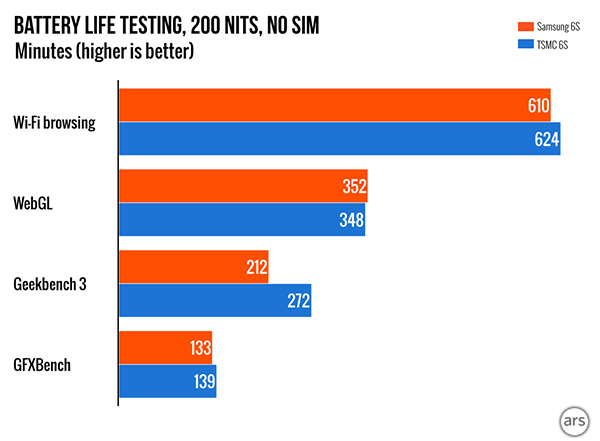When Apple confirmed that it is indeed using two different manufacturers for the A9 chip that beats at the heart of the iPhone 6s and iPhone 6s Plus, it wasn’t a huge surprise given what we already knew. Apple also sought to play down claims that the TSMC A9 chip would best its Samsung-made counterpart in battery tests, with various YouTube channels posting videos and an equal number of publications posting benchmark test results that claimed that to be the case.
With Apple pointing out that the difference between any of the new iPhones that it tested over a period of time falls within the 2-3% range, it was clear Apple wasn’t concerned that one of the two models of A9 used in its smartphones was eating more battery when compared to the other. And if it was, it wasn’t doing it beyond the realm of reasonable variations.

Now, Ars Technica has published its own findings on which of the A9 chips is the one to get – the TSMC or the Samsung.
As the findings show, the TSMC does indeed perform slightly better than its Samsung counterpart when pushed, especially in scenarios that involve hardcore, power-hungry performance testing such as that found within Geekbench 3. Taking that particular test out of the equation, Apple’s 2-3% window of variation holds true, suggesting that no matter which A9 is inside your new iPhone, it’s going to be both plenty fast and importantly, likely to last just as long as your friend’s.

Battery test results, all of which, barring Geekbench 3, show only slight differences in runtime between TSMC and Samsung manufactured A9
So, can we now lay this to bed for once and for all? Check out the full post at source, complete with graphs for the full scale of the non-issue.
(Source: Ars Technica)
You may also like to check out:
- Detailed Benchmarks Show iPhone 6s Is The Fastest Phone In The World
- Some iPhone 6s Users Reporting Overheating Issues [Screenshot]
- Dual-Core iPhone 6s Smokes Galaxy S6, Note 5, Other Android Phones In Initial Benchmarks
You can follow us on Twitter, add us to your circle on Google+ or like our Facebook page to keep yourself updated on all the latest from Microsoft, Google, Apple and the Web.

